Table of Contents
What is an Interrogative Sentence?

An interrogative sentence is a type of sentence that asks a question. Its main purpose is to gather information. These sentences usually end with a question mark (?).
Structure of Interrogative Sentences
An interrogative sentence typically begins with:
Question Words – like who, what, where, when, why, or how.
- Where is your book?
Auxiliary Verbs – like is, are, do, does, will, or can.
- Are you coming to the class?
The main purpose of interrogative sentences is to ask questions and gather information. These sentences help in communication by allowing us to clarify doubts, seek details, or confirm facts. Interrogative sentences make conversations interactive and meaningful.
Examples
1۔To Ask for Information
- What is your favorite subject?
- Where do you live?
2۔ To Confirm Details
- Is she coming to the class?
- Are you ready for the exam?
3۔ To Offer Options
- Do you want tea or coffee?
- Would you prefer to study now or later?
4۔To Clarify Doubts
- Why is the project delayed?
- How does this grammar rule work?
Types of Interrogative Sentences
Interrogative sentences are mainly divided into four types. Each type serves a specific purpose in asking questions. Here’s a detailed explanation with examples for better understanding.
1. Yes/No Questions
These questions can be answered with a simple “yes” or “no”. They often begin with helping verbs like is, are, do, does, can, or will.
- Do you like English?
- Is she coming to the party?
- Can you solve this question?
2. Wh- Questions
These questions start with question words like what, where, when, why, who, or how. They are used to get specific information.
- What is your favorite subject?
- Where do you live?
- Why are you late today?
- How do you solve this problem?
3. Choice Questions
Choice questions provide options to choose from. They use words like or to separate the options.
- Do you want tea or coffee?
- Would you prefer to study at home or at school?
- Is your class in the morning or evening?
4. Tag Questions
Tag questions are short questions added at the end of a statement to confirm information. They use auxiliary verbs and pronouns.
- You are a student, aren’t you?
- She is coming to the class, isn’t she?
- You don’t like this book, do you?
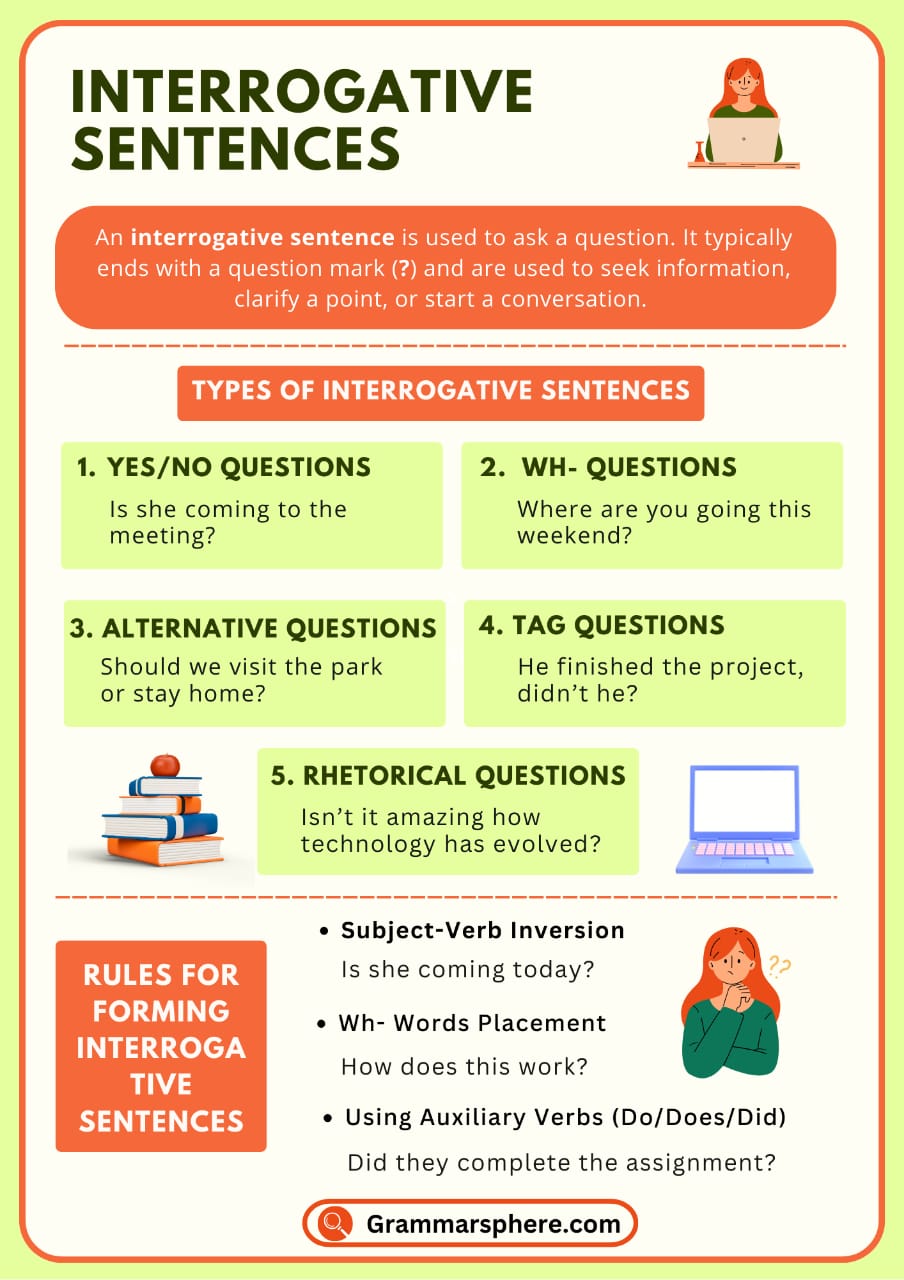
Rules for Interrogative Sentences
To form an interrogative sentence, you must follow specific rules based on the type of question being asked. Understanding these rules makes it easier to ask clear and correct questions in English.
1. Use of Auxiliary Verbs (Helping Verbs)
In interrogative sentences, auxiliary verbs like is, are, do, does, did, or will are placed at the beginning of the sentence.
- Is he coming to school?
- Do you understand this topic?
2. Starting with Question Words (Wh- Words)
When asking for specific information, start the sentence with question words such as who, what, when, where, why, or how. The auxiliary verb follows the question word.
- What are you studying?
- Where does she live?
3. Inversion of Subject and Verb
In yes/no questions and questions with auxiliary verbs, the subject and verb change their position (inversion).
- He is playing. → Is he playing?
- They can help. → Can they help?
4. Adding Question Tags
For tag questions, a short question is added at the end of a statement to confirm or clarify information.
- You are a teacher, aren’t you?
- He didn’t come, did he?
5. No Auxiliary Verb in Questions with “Who” as the Subject
When who acts as the subject of the question, there is no auxiliary verb in the sentence.
- Who teaches you English?
- Who came to the meeting?
6. Forming Choice Questions
Choice questions provide options and use the conjunction or to connect them.
- Do you want tea or coffee?
- Is she at home or in the office?
Example Sentences of Interrogative Sentences
- What is your name?
- Where do you live?
- Why are you late for class?
- How does this machine work?
- When will the meeting start?
- Who is your favorite teacher?
- Can you help me with this assignment?
- Do you like learning English?
- Are you coming to the party?
- Did you complete your homework?
FAQS of Interrogative Sentences
1. What is an interrogative sentence?
An interrogative sentence is a sentence that asks a question and ends with a question mark (?) to gather information.
2. What are the types of interrogative sentences?
The main types are Yes/No questions, Wh-questions, Choice questions, and Tag questions.
3. How do interrogative sentences start?
Interrogative sentences usually start with question words (like what, where, why) or helping verbs (like is, are, do).
You May Also Like

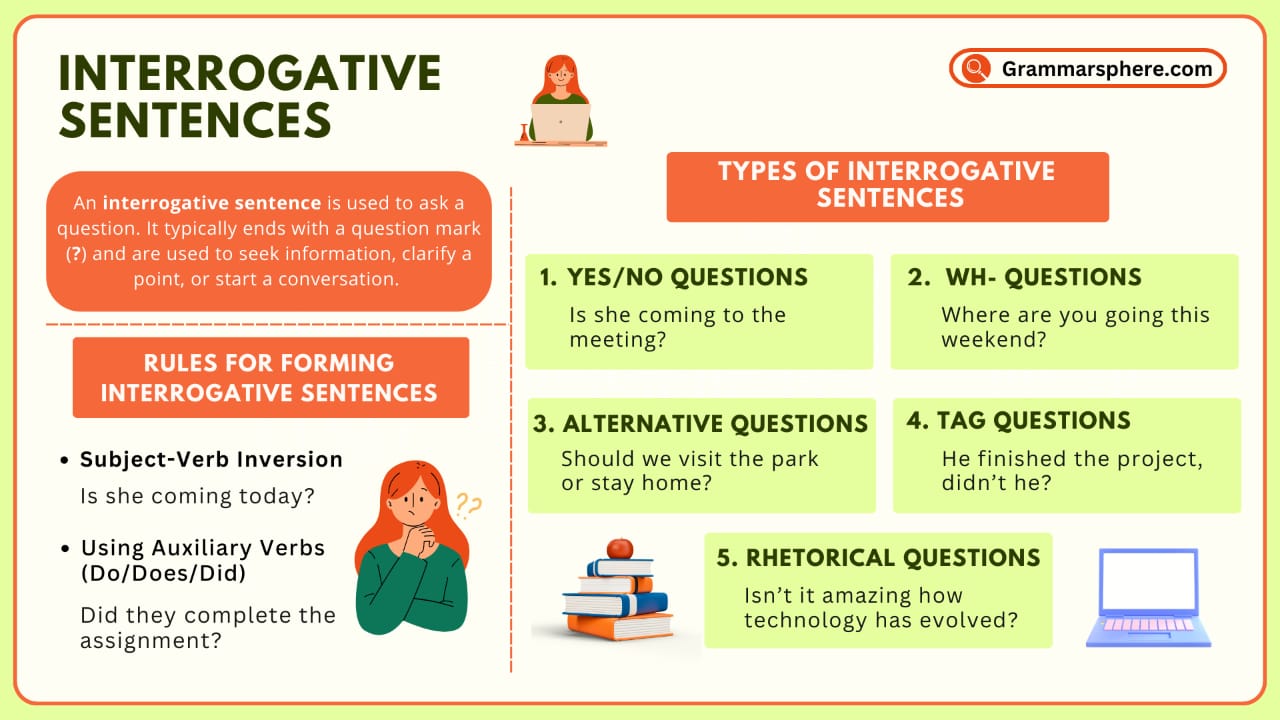
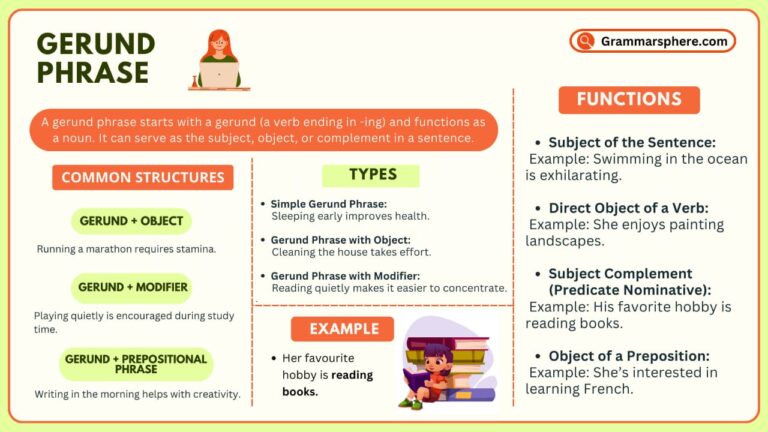
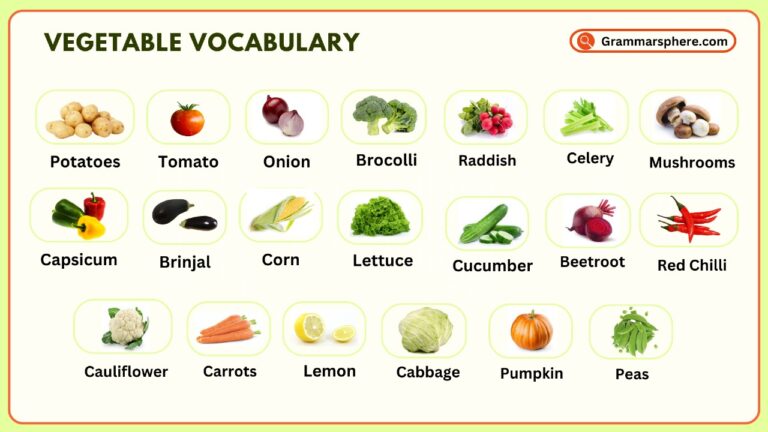
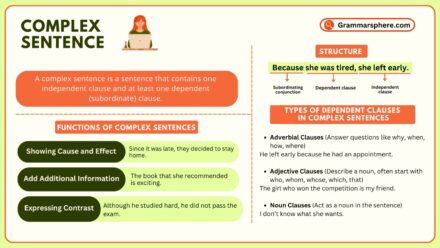
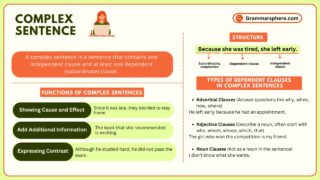
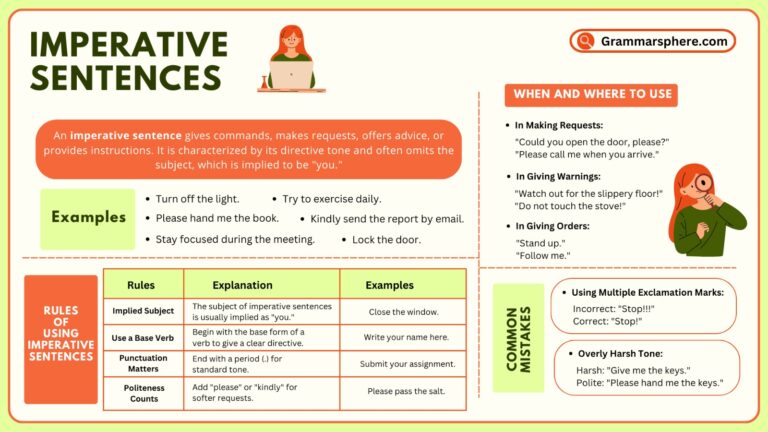
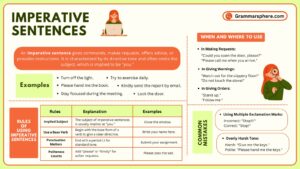
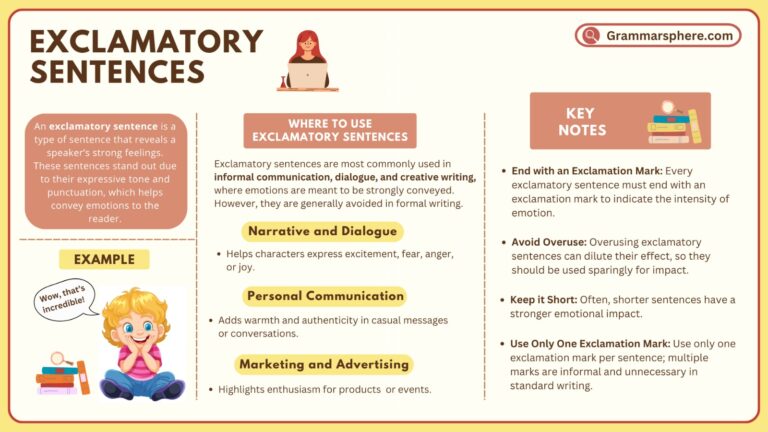

Leave a Comment